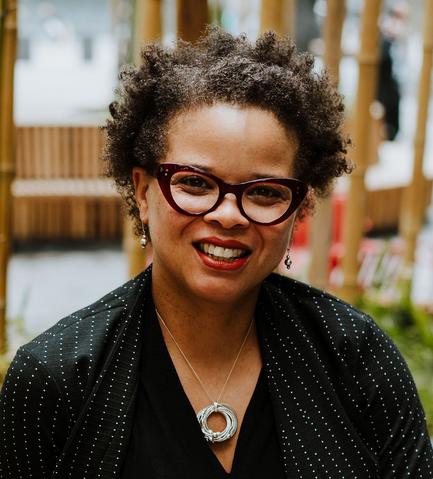Advisory Board
This journal aims to provide a space for racialised minorities authors to share knowledge around racial health inequalities. We are dedicated to promoting knowledge that might otherwise be stifled under current academic structures. We are looking for authors, artistic creators, non-university voices, and academics to voice issues of importance for marginalized communities who generally do not have a voice.
We take inspiration from the Audre Lorde quote, "The master's tools will never dismantle the master's house", by upending traditional journal structures and creating our own tools for sharing knowledge. We will work with authors from the start of their writing journey, recruiting people based on who they are and what they want to say, rather than a completed manuscript. Articles will be accompanied by lay summaries (and translated summaries where appropriate) and related artwork. Every article will be open access, and we are seeking submission from non-university researchers to broaden out platform.
Academic publishing is one of the barriers for future racialised minoritised academics, and academic institutions should not hold a monopoly on knowledge production. This journal provides a clear and actionable path to facilitating inclusive publication where early-career authors will be supported to produce impactful publications. This could spark a potential career in academia and help break the bottleneck of the attainment gap.
Professor Stephani Hatch

Professor Stephani Hatch leads the Health Inequalities Research Group (HIRG) at King’s College London and co-leads the Marginalised Communities programme, including the CONNECT study at the ESRC Centre for Society and Mental Health CSMH, KCL. Stephani has over 25 years of experience across sectors, locally and nationally, delivering interdisciplinary health inequalities research with an emphasis on race at the intersection of other social identities. She is Principal Investigator for the TIDES study and co-leads and co-leads the development of the Health and Social Equity Collective, funded by King’s College London and Impact on Urban Health. Stephani integrates collaborative approaches to knowledge production and dissemination, action and outreach in training and research through HERON, which she founded in 2010. She also leads equality, diversity and inclusion initiatives and has national and international advisory roles in health and volunteer and community sectors, including as a member of the NHS RHO Board.
Dr Tanisha Spratt
Dr Tanisha Spratt is a Senior Lecturer in Racism and Health in the Department of Global Health and Social Medicine, King’s College London. Building on her sociology background and working across literary and cultural studies, Tanisha’s research centres on racial inequalities in health outcomes in the UK and the US.
Specifically, her research focuses on the role of neoliberalism in promoting and sustaining understandings of personal responsibility, deservedness and grievability when it comes to illness, death and dying. Tanisha is particularly interested in how racism-induced stress can lead to poor health outcomes for racial and ethnic minority groups, and how expectations of resilience can further impact those health outcomes. She is also interested in how experiences of social (in)visibility affect racialised groups, and how that often intersects with experiences of mental and physical illness.
Mama D
Mama D is a Community Researcher and Facilitator whose background is in Nourishment praxisand embodiedand art-based advocacy towardsSocially TransformativeJustice. She currently curates, within Community Centred Knowledge, Learning Journeys, exploring the interfaces of community, modernity and systems ofjustice viaart, culture and otherthan human‘lenses’. She uses embodied, multi-sensoryand action research methods to interrogate the interfaces of both community and academic institutional knowledge assemblage and flow. She is interested in how humans navigate justice issues over time and space and how all beings manage personal and social trauma within bodies located across the ecologies and territories of the Anthropocene.
Dr Salim Hashmi
Dr Salim Hashmi is a Lecturer at King’s College London whose background is in Developmental Psychology and Inclusive Education in Higher Education. In regard to the latter, Salim is particularly interested in inclusive curriculum and teaching practices, as well as the broader experience of students from minoritized and less represented backgrounds.
Dr Udita Iyengar
Udita is a Lecturer in the Department of Psychosis Studies at King's College London IoPPN. She completed her PhD from University College London, with her research focusing on maternal attachment, brain, and behavioural responses to infant facial expressions using functional neuroimaging. Udita joined King’s College London in 2016 as a postdoctoral researcher at the SGDP, and coordinated the c-VEDA project (2016-2017) and the Best Services Trial in the Department of Child and Adolescent Psychiatry (2017-2022) before joining the Department of Psychosis Studies as a lecturer in 2022. Udita supervises numerous MSc projects, teaches across two MSc programmes at the IoPPN, co-leads modules on basic mental health and women's mental health, and is leading a new module on the lived experience of serious mental illness.
Udita was the lead applicant for a Race, Equality, and Inclusive Education Funding award, to create a student-led advisory board of racially minoritised postgraduate students at the IoPPN. She is very driven to improve the student experience and create more opportunities for minoritised students to come together and is delighted to be on the Stolen Tools advisory board and be involved in such an important journal.
